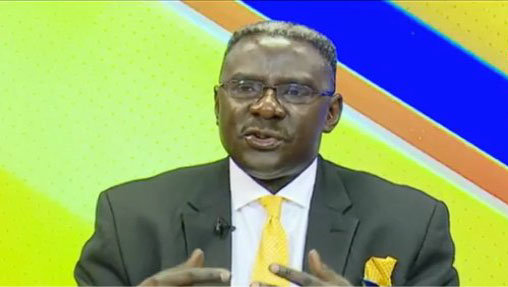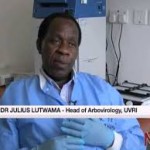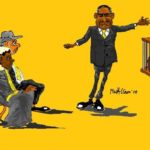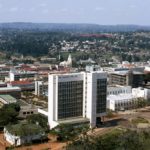Amb. Henry Mayega
The statehood and story of Uganda birthed on October 9, 1962 as an independent country are a mixed grill of ups and downs. Yet that journey presents a myriad of noteworthy achievements. It should be recalled that before 1962, our country was ruled by British colonialists who at one point in time referred to us in 1894 as a “protectorate,” none of us knows against whom they were protecting us! Like a child grows from infancy to adulthood, Uganda, after the lowering of the Union Jack (the British flag) on October 9, 1962, has soldiered on under similar circumstances.
Some have suggested that the cultural, economic and political gulf created between the colonized and colonizers was indestructible; their intuition and axiom was faulty. We have come a long way because before 1962 it was not possible for indigenous Ugandans to copiously tread Kampala road; they loitered in Katwe and other lowly places. With that background, this column will, mainly, look at the political direction of Uganda since independence.
Firstly, after attaining independence, Uganda was admitted to the UN and OAU, a milestone that placed Uganda at the international scene; as a result, Uganda was particularly instrumentally convoluted in supporting the admission of China to the UN (a matter that had been resisted by some in the western hemisphere) and the independence struggles of southern Africa.
Secondly, the period from 1962 – 1986 was largely dotted by political instability, a phenomenon that had far reaching consequences for independent Uganda. Nevertheless, the country registered two important epochal milestones after 1962 namely: the country became a sovereign state and it simultaneously obtained self-determination. Whereas before these two were achieved Uganda used to be ruled from London, UK, the times after 1962 saw self- government based in Kampala and by Ugandans not British governors appointed by the Queen’s government. That also meant we had our own three independent and indigenous arms of government namely the executive, legislature and judiciary, un-encumbered by the colonial yoke!
Thirdly, there was an attempt at entrenching democratic practices in 1962 but a couple of things colluded to immobilize that; the pedigree of inexperienced and untried hands of independence leaders both at the national and federal echelons plus the ever overarching and intrusive former colonial masters betrayed that attempt! Whereas those independence leaders were akin to apprentices operating without instructors, the former colonial masters continued with their meddlesome games.
It was much later that a man who many under-rated and cold-shouldered in equal measure, Yoweri Museveni, repudiated the undemocratic practices of the period between 1962 – 1986; the times after saw greater involvement of all and sundry, the youth, women, PWDs, workers and the general populace who were mobilized to participate in the governance of their country; never before had we seen that level of inclusion. The west has always had a tendency of defining democracy for the rest of the world but Yoweri Museveni set a different pace, pulse and tone by establishing countrywide local council committee structures; that form of democracy was unprecedented because it replaced the repressive and monolithic colonial political configuration.
The Yoweri Museveni administration for the first time created an environment of good governance based on constitutionalism and truly democratic principles. Initially, Uganda had layers of repressive chiefs (at parish, Gombolola, Saza and district levels plus the all-powerful British governor at the helm) with a colonial mindset purposed to serve masked imperialists, their agents and the parasitic British Empire. This column can confidently argue that the bigger part of the achievements of independent Uganda have been made during the tenure of the Yoweri Museveni administration.
Fourthly, the post-independence administration of Apollo Milton Obote inherited a largely colonial army in 1962, the Uganda Army, which morphed into UNLA in 1979. That outfit, apart from changing names, comprised of the same old guard who were particularly semi illiterate and, and as usual, purposed to serve the colonial administration. Elements of it were imported from Sudan and they owed it all to their pay masters, the British colonialists, not the Ugandan citizenry! The Yoweri Museveni administration disbanded that old guard and it simultaneously created a truly modern national army, the UPDF. That prodigious and awesome post-independence achievement has seen the UPDF participate in peace keeping and enforcement operations outside our national borders. Their stellar performance has, for instance, been exhibited in Somalia where the Americans intervened and failed.
This column can confidently argue that the UPDF is a disciplined security organ of the country compared to its predecessors. It is because of that regimen that we have been insulated against coup d’etats and take overs for a cool thirty four years to the yonder.
Relatedly, the NRA and its successor, the UPDF have collectively been the precursors of the restoration of peace, security and stability in Uganda; never before did Ugandans luxuriate and bask in tranquility like during the Yoweri Museveni administration; that unprecedented equanimity has permitted the growth of indigenous business personages, corporate class, political class and others giving them the requisite dexterity in managing national affairs. Those achievements by indigenous people have concomitantly led to the growth of the national economy employing millions of citizens.
Fifthly, whereas the first twenty or so years of independence dispersed all sectors of Uganda, citizens can bombastically boast of the renaissance of our country since 1986. This administration restored traditional leaders that had been banned in 1966 by the Milton Obote government (because states could not be accommodated within a state) and enacted a law to insulate them from the manipulative opposition that had always sought to malignantly wallow them in the heaving political waters after 1986. That restoration calmed the nerves of regions that yearned but were deprived of their cultural direction; relatedly, this administration has attained a level of restitution by returning kingdom assets hitherto confiscated by the central government in 1966 to rightful owners thereby promoting harmonious co-existence between the state and cultural institutions. It will be hard for anyone to fathom banning those institutions in the future because they are apolitical now.
Sixthly, whereas the 1962 independence constitution was negotiated outside our national borders and the “pigeon hole” constitution of 1966 was pushed down peoples’ throats, the 1995 constitution was a culmination of popular nationwide consultations at the behest of the Yoweri Museveni administration rendering the infamous mode of legislating by decrees of Idi Amin in the 1970s a thing of the past. Relatedly, the lack of rule of law and extra judicial killings were back-yarded never to be part of our body politic anymore.
Lastly but not least, this administration implemented the decentralization policy under the local government act of 1997; this unprecedented measure enacted in 1992 devolved a host of powers from the center to local governments. The local government further entrenched those entities as bodies corporate with powers to enter into contracts including investment ventures with individuals or other corporate bodies as well as sister local governments.
The policy of decentralized service delivery institutions and their governance for purposes of improving access to services for the rural poor.
Amb. Henry Mayega
Deputy Head of Mission
Uganda Embassy
Beijing, China








